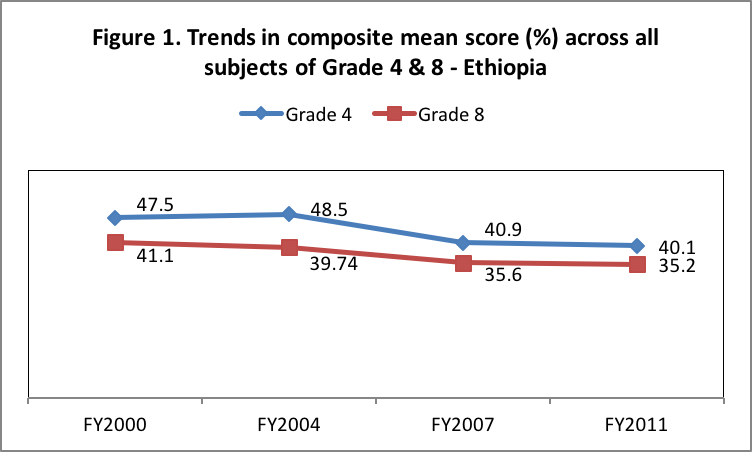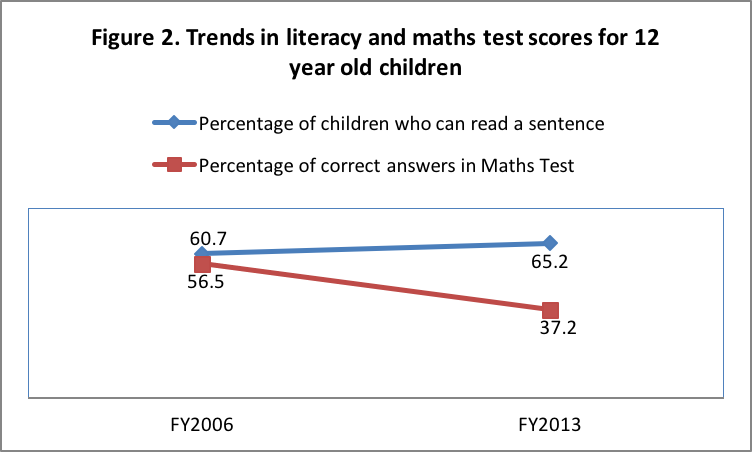Tassew Woldehanna
Addis Ababa University
Blog
On 26th October 2017, representatives from the Ethiopian Ministry of Education and the Regional Educational Bureaus, as well as key donor organisations working in the education sector - including the World Bank, the UK Department for International Development (DFID) and the US Agency for International Development (USAID) - gathered in Addis Ababa, Ethiopia for the official launch of the RISE Ethiopia country research programme. The RISE research team will examine the education system in Ethiopia to determine whether, and how, a large package of national education reforms works to improve learning equitably.
The impact of researching systems of education requires not only support from different stakeholders, but also their engagement to facilitate dialogue, exchange information, provide feedback, and promote change. Such support and engagement was clearly evident amongst the attendees at the launch, ensuring the event was a milestone towards a successful research programme. The launch event also recognised the importance of creating dialogue amongst researchers, policy makers, and practitioners, and further reinforced the commitment of the research team to engage with stakeholders throughout the study.
Ato. Berhanu Moreda, Advisor to the State Minister of Education, General Education sub-sector opened the event by highlighting the significance of the RISE research for the Ministry of Education and demonstrated the government’s support for the study.
The Principal Investigator of RISE Ethiopia, Tassew Woldehanna, set out the rationale of the study to the stakeholders, highlighting that despite the value placed on education in Ethiopia and the strong political will that is present, the quality of education has not improved sufficiently. While primary school enrolment has soared in recent years, repetition and dropout remain high. Additionally, literacy and numeracy levels appear to have remained unchanged during the last decade. Evidence from the National Learning Assessment in Ethiopia has shown that average learning levels have declined in recent years in Ethiopia at Grade 4 and Grade 8, as demonstrated in Figure 1.

Source: National Achievement Survey data, Ethiopia
Recent Young Lives data presents a mixed picture that suggests the need for further investigation. The data shows that the percentage of students who answered the maths test correctly decreased from 57 percent in 2006 to 37 percent in 2013. However, it also found that the percentage of children who can read a sentence increased slightly from 61 percent in 2006 to 65 percent in 2013 (Figure 2).

Source: Young Lives data
Furthermore, aggregate figures do not tell us the full story. In reality, the picture is more complex as inequalities across gender, location, and rural-urban divide are widespread in the education system in Ethiopia. On the one hand, greater access amongst these groups has resulted in wider diversity in the classroom, requiring widespread education reforms as the system moves from an elitist to a mass model. On the other hand, available evidence indicates these children are the least likely to be learning.
Acknowledging the need for change, the Government of Ethiopia has implemented a number of reforms to strengthen the quality of education. The apparent mismatch between government commitment to improving quality of education and stagnation in learning, in particular for certain groups of the population (notably for those living in poverty, girls, children with disabilities, linguistic minorities, and pastoralists), raises key questions that the RISE research will seek to answer over the next five years.
To understand the reasons for this mismatch, discussions at the launch centred around the importance of the RISE research aiming to examine the education system as a whole, from the federal, regional and woreda (district) levels, through to schools. It was further noted that the mismatch requires an understanding of how educational policies are designed and implemented, how policies are understood by different stakeholders, and whether there are bottlenecks in the translation of policies into practice. Participants also highlighted variations in how reforms have been implemented across different parts of the country, for example with respect to school feeding in areas where drought is pervasive, or emergency education in areas affected by an influx of refugees.
Representatives from the Ministry of Education and donor organisations highlighted misalignments within the system, which they believed were a reason for the mismatch between commitment and outcomes. For example, it was suggested that within the Ministry of Education, curriculum reforms were not aligned with changes to the learning assessment processes. Stakeholders noted that these horizontal misalignments in the system were key for the research team to understand, alongside vertical misalignments with respect to information and resources flowing from federal to school levels.
Another key aspect of the discussion was recognition that reform is a dynamic process. The Ministry of Education, together with donors, are in the process of moving from the current GEQIP-II quality education programme to a new phase expected to start in the coming months - GEQIP-E. The new programme will maintain elements of GEQIP-II, but it is likely to have a more focused approach on equity, as well as on processes for monitoring the delivery of the programme. Stakeholders noted that this transition will be important for the RISE Ethiopia team to track.
Overall, the launch highlighted the agreement amongst the research team and stakeholders on the relevance of the RISE research programme for assessing key issues facing the education system in Ethiopia. Stakeholder engagement throughout the research process will be vital to the success of the programme to understand how to raise learning outcomes for all children, regardless of background.
More information about the team’s research programme and objectives can be found here.
A report on the launch was aired on national television in Ethiopia: http://www.ebc.et/web/news/-/--5952
The RISE research project in Ethiopia is led by Professor Tassew Woldehanna from the Ethiopian Development Research Institute, and supported by Professor Pauline Rose from the Research in Equitable Access and Learning (REAL) Centre, University of Cambridge, who leads the international team. Other partner institutions include the Institute of Educational Research at Addis Ababa University, the Ethiopian Education Strategy Centre, the University College London Institute of Education, Cornell University and Stockholm University.
RISE blog posts and podcasts reflect the views of the authors and do not necessarily represent the views of the organisation or our funders.